I am looking for solution where i want to store English + Arabic + Emoji Character to store to Database and retrieve it back while display.
Below is the code what i have used to support Emoji, after that Arabic text is not showing.
+(NSString *)emojiToSave:(NSString *)str
{
NSData *dataForEmoji = [str dataUsingEncoding:NSNonLossyASCIIStringEncoding];
NSString *encodevalue = [[NSString alloc]initWithData:dataForEmoji encoding:NSUTF8StringEncoding];
return encodevalue;
}
+(NSString *)emojiToDisplay:(NSString *)str
{
NSData *msgData = [str dataUsingEncoding:NSUTF8StringEncoding];
NSString *goodMsg = [[NSString alloc] initWithData:msgData encoding:NSNonLossyASCIIStringEncoding];
return goodMsg;
}
Can anyone pls suggest to give support for Arabic what change i should do?
Thanks in advance.
